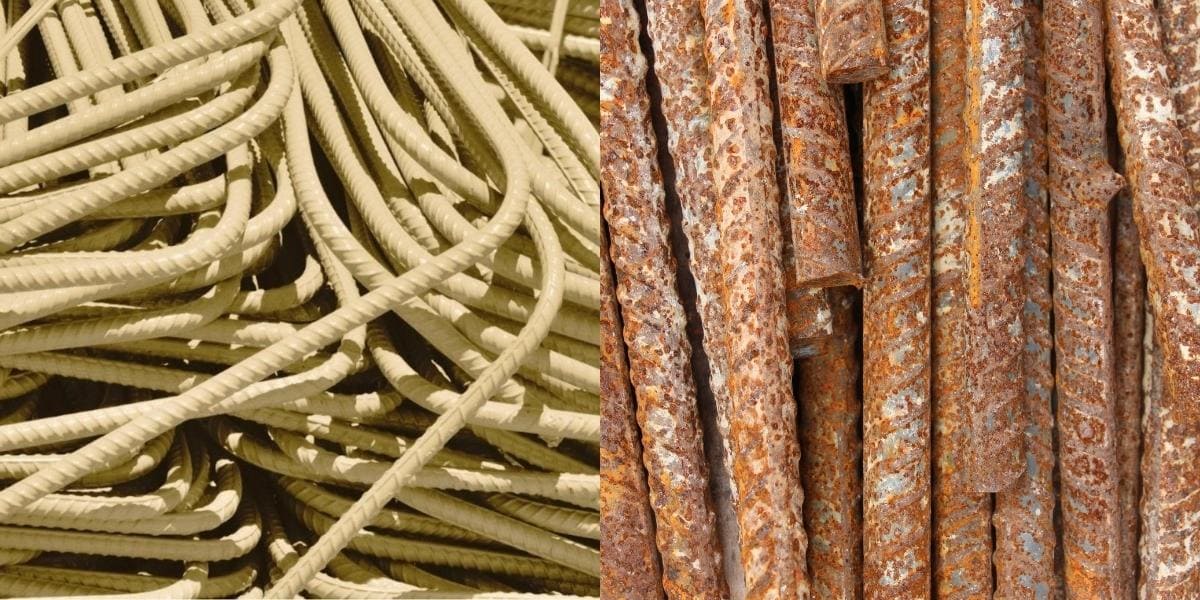Durability and a longer life span are the basic requirements of reinforcement material. That’s exactly why choosing the right one can be a game-changer in the world of construction. Over the last decade, composite rebars made from materials such as glass fiber (GFRP) have emerged as a strong alternative to conventional steel rebars. But do they truly offer stronger performance than the latter?
Let’s take a closer look for Composite Rebar vs Traditional Steel –
1. Durability and Corrosion Resistance
One significant limitation of steel is its susceptibility to corrosion. Steel rebars are prone to rusting, particularly in marine environments that are exposed to moisture, salt, or chemicals. This inevitably leads to cracks and spalling in the concrete. Within 10 years, corrosion can cause a 10–25% reduction in steel’s strength in harsh conditions.
On the other hand, composite rebars are non-corrosive and remain unaffected by water or salt exposure, ideal for coastal infrastructure projects such as bridges. Evidently, composite rebar outperforms steel in terms of corrosion resistance and long-term durability.
2. Strength and Structural Performance
Steel has long been valued for its strength and ductility, where it bends before it breaks, giving off structural warning signs. However, composite rebars offer superior tensile strength, exceeding that of steel.
Though composites are more brittle than steel, they can be engineered with smart design to beat the possibility. Moreover, the consistent strength without corrosion-induced weakening ensures long-term structural reliability. While both materials are strong, composite rebars outshine steel in tensile performance and long-term durability, making them the smarter choice for modern project, maintenance-free structures.
3. Weight, Handling, and Installation
Composite rebars are about 4 times lighter than steel, making them easier to transport and handle on-site. The lightweight quality of these rebars helps speed up installation and cut down transportation and labour costs. They outperform steel rebars in convenience and efficiency.
4. Cost and Long-Term Value
Whole steel has been the first choice over the years, but composite rebars surpass it nowadays, especially with the value for money they offer. Not only are they cheaper, but also more efficient and low-maintenance, offering long-term monetary returns, too.
Ultimately, the choice between composite rebar vs steel rebar depends on the environment, design life, and maintenance priorities. For future-ready infrastructure that demands longevity with minimal upkeep, composite rebar is proving to be a durable investment in modern construction.
Also Read –

